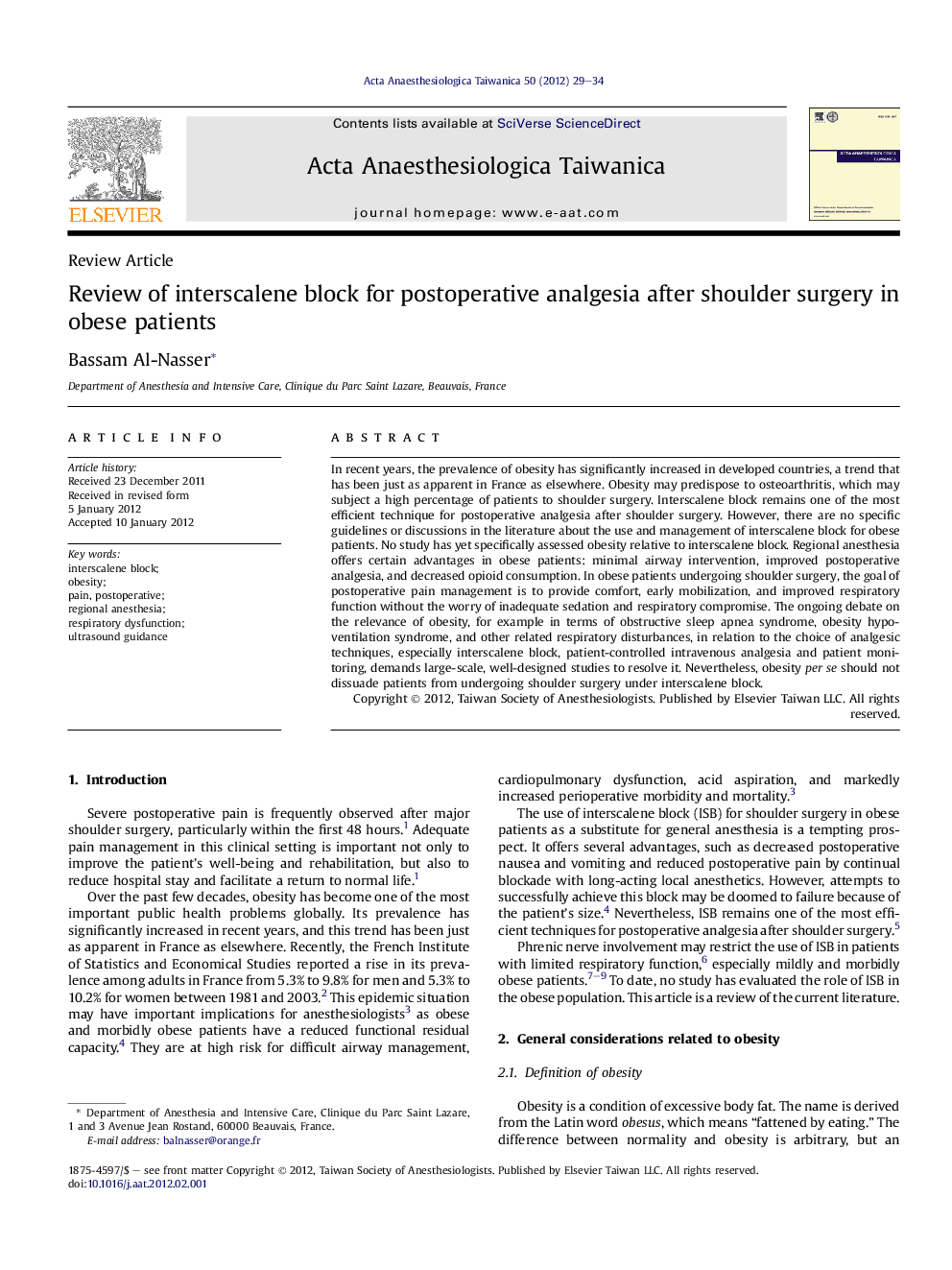| Article ID | Journal | Published Year | Pages | File Type |
|---|---|---|---|---|
| 2741584 | Acta Anaesthesiologica Taiwanica | 2012 | 6 Pages |
In recent years, the prevalence of obesity has significantly increased in developed countries, a trend that has been just as apparent in France as elsewhere. Obesity may predispose to osteoarthritis, which may subject a high percentage of patients to shoulder surgery. Interscalene block remains one of the most efficient technique for postoperative analgesia after shoulder surgery. However, there are no specific guidelines or discussions in the literature about the use and management of interscalene block for obese patients. No study has yet specifically assessed obesity relative to interscalene block. Regional anesthesia offers certain advantages in obese patients: minimal airway intervention, improved postoperative analgesia, and decreased opioid consumption. In obese patients undergoing shoulder surgery, the goal of postoperative pain management is to provide comfort, early mobilization, and improved respiratory function without the worry of inadequate sedation and respiratory compromise. The ongoing debate on the relevance of obesity, for example in terms of obstructive sleep apnea syndrome, obesity hypoventilation syndrome, and other related respiratory disturbances, in relation to the choice of analgesic techniques, especially interscalene block, patient-controlled intravenous analgesia and patient monitoring, demands large-scale, well-designed studies to resolve it. Nevertheless, obesity per se should not dissuade patients from undergoing shoulder surgery under interscalene block.
